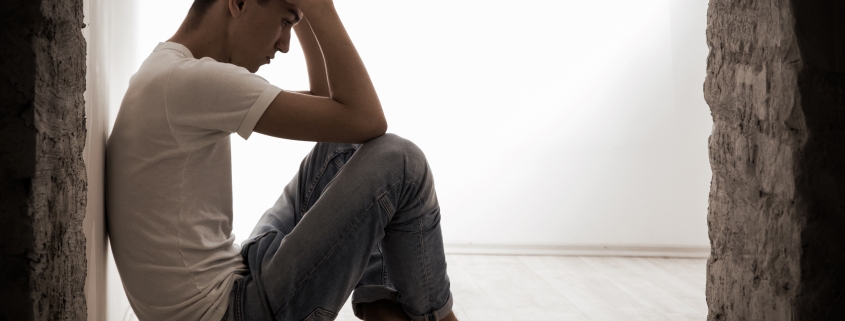Relapse is a common danger in addiction recovery. A frequently cited study in the Journal of the American Medical Association estimates that between 40 and 60 percent of people treated for addiction will relapse within a year. In fact, there is an ongoing debate about whether relapse should be considered part of recovery. Proponents of this view argue that acknowledging relapse as a normal part of recovery makes people feel less discouraged after a relapse and more willing to try again. Critics argue that this view can undermine a person’s resolve to stay sober, that a relapse can be extremely discouraging, and, perhaps most importantly, overdose are most common after relapse. Whatever your position, one thing is clear: it’s best to avoid relapse if you can.
Contrary to popular belief, relapse doesn’t usually just happen. It’s not typically the case that someone with a year of sobriety will arbitrarily decide to go on a bender. There may be cases where a sudden shock leads to a relapse, but typically relapse is a gradual process with distinct phases. It’s an idea that grows over time, perhaps invisibly, until one day you take the final step of using again. If you are familiar with this process, you may be able to correct course before a relapse happens. The earlier you make adjustments, the more likely you will maintain your recovery.
Here are the typical phases leading to relapse.
Emotional
Relapse often begins on an emotional level. Feeling stressed, anxious, depressed, or overwhelmed every once in a while is normal, but if you feel that way often, it may be a sign that something is wrong. Perhaps you were enthusiastic and optimistic about recovery at first, but now you feel disillusioned or cynical. Twelve-step veterans often call this “stinking thinking” and know it’s an early warning sign that relapse is coming.
There are several reasons you may be experiencing emotional turbulence. It could be that life is throwing a lot at you and you’re having trouble coping. It could be that your expectations of recovery were too high. Perhaps you thought life would be great once you quit drugs and alcohol, but progress isn’t coming as fast as you expected and you feel disillusioned. Sometimes it just takes a while to shake the anxiety and depression caused by long-term substance use.
When you start to feel this way, it’s crucial to recognize it and adjust. Talk to a therapist or share with your group. If you’re feeling overwhelmed by life in general, seek social support and focus on healthy coping strategies.
Mental
If your emotional state keeps getting worse, you might start having thoughts of relapse. That is, you might start thinking about using again. Even if you don’t really plan to use again, you might start reminiscing about the good times when you drank or used drugs with friends, conveniently forgetting all the bad times. You might start thinking that you’ve done so well for so long that you probably have your addiction under control and you can start using again in moderation. When you get farther down the path of mental relapse, you may start bargaining with yourself, entertaining ideas such as rewarding yourself with a beer during lunch if you finish a work project by Friday. You may start spending time with old friends who still drink or use. You’ve progressed very far in the mental stage when you start coming up with excuses for relapsing or make a specific plan to relapse.
If you get to this point, your recovery is in crisis. If you want to stay sober, you have to make a change right away. Talk to your therapist, call your sponsor, or go to meetings. This is your last opportunity to save your recovery.
One powerful antidote to the mental stage of relapse is to “play the tape.” This is a strategy common in 12-step circles. The idea is simple: you force yourself to see all the consequences of relapse. When you’re in the mental stage of relapse, all you think about is the relief you can get from using again or all the fun times you had while drinking or using drugs. Your brain leaves out all the awful consequences of addiction. When you play the tape, you force yourself to remember your substance use as it really was. Think beyond the initial relief, to the disappointment and remorse that will soon follow. Remember in vivid detail the worst moments of addiction and why you finally decided to get help.
Physical
Physical relapse is when you actually start drinking or using again. As noted above, this isn’t typically a fluke or accident. If you actually relapse, you’ve probably been planning it for a while and at some point made a definite decision. It’s important to note that not all relapses are the same. Sometimes people slip up, say, by having a drink or several drinks, regretting it immediately, then going back into recovery. Others go all in and it may take weeks, months, or years, before they’ll consider quitting again.
Although relapse is discouraging, and possibly dangerous, a relapse does not mean failure. By one estimate, 90 percent of people with alcohol use disorder fail in recovery at least once before sustaining recovery long term. Many people do succeed in recovery after several failed attempts. The important thing is to try again as soon as possible. Learn what you can from the relapse and try to correct for it the next time. Often, people who keep relapsing need a different approach, such as long-term treatment with extensive follow-up support.
Burning Tree Ranch specializes in treating chronic relapse in people with chemical dependency. We provide long-term support through residential and extended care programs that help our clients break their old patterns of addiction and learn new skills to support a healthier life. Our Dallas residential treatment program is focused on providing premium substance use treatment at an affordable cost. Contact us today for more information.





